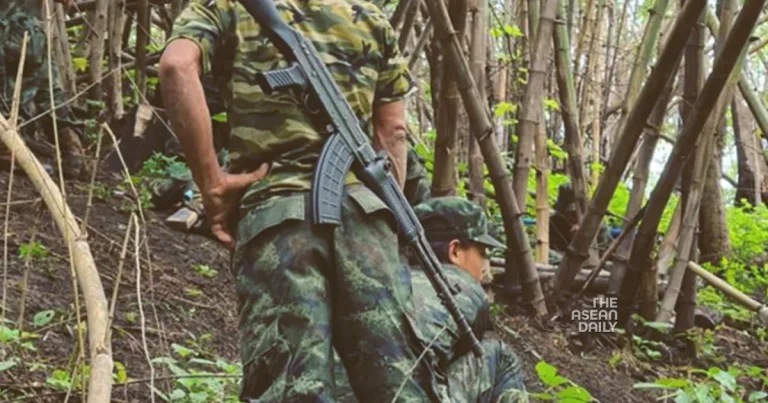29-9-2023 (YANGON) The acting leader of Myanmar’s government-in-exile has declared that resistance forces now control approximately 60% of the country’s territory, posing a significant threat to the ruling junta in key strongholds.
As Myanmar’s military, led by Min Aung Hlaing, grapples with a crumbling economy and growing dissent within its ranks, violence in the country has escalated. The military is struggling to cope with a multi-front conflict involving several armed ethnic groups.
The National Unity Government (NUG), a shadow government formed after the 2021 coup and allied with ousted leader Aung San Suu Kyi, along with other armed ethnic groups, has intensified ground attacks and has set its sights on new military operations near the capital city of Nay Pyi Taw.
Duwa Lashi La, the acting president of the exiled NUG, expressed optimism about the progress of the people’s defence war. “It has been more than two years since we started the people’s defence war. Now, cooperation between People’s Defence Forces and ethnic revolutionary forces is yielding good results,” he stated in a recent interview. “We are now in a position to even threaten Nay Pyi Taw.”
While the ruling junta still maintains control over key cities, an assessment by Myanmar experts last year revealed that the military only had stable control over 17% of the country’s total land area. Local media have reported recent attacks in the capital, including an assault on a junta airbase this month.
Maj Gen Zaw Min Tun, the lead spokesman for the ruling State Administration Council, did not respond to inquiries regarding the extent of the opposition’s control. The regime views the NUG and its allies as terrorists.
The United Nations Security Council passed a resolution in December calling for an end to violence in Myanmar and the release of political prisoners. While the resolution’s impact was limited due to abstentions by China, Russia, and India, the junta’s revenue-generating capabilities have faced setbacks as a result of multiple rounds of economic sanctions imposed by the United States and its partners.
Despite this, the junta has escalated its assaults on the civilian population of 55 million, conducting nearly 700 air strikes between April 2022 and July of this year, according to UN High Commissioner for Human Rights Volker Türk. He also highlighted mass killings and the burning of villages as tactics employed to discourage civilians from cooperating with the junta’s enemies.
NUG leader Duwa Lashi La, a Kachin politician and lawyer, revealed that resistance fighters have captured over 100 junta outposts throughout the country following thousands of clashes with government troops in the past year. He added that around 14,000 military defections have been facilitated.
The morale within the junta has come under scrutiny, and a recent corruption probe resulted in the replacement of two lieutenant generals close to Min Aung Hlaing.
Amid widespread unrest, the regime extended the state of emergency for another six months, dashing hopes of a general election this year.
Duwa Lashi La expressed encouragement over the increasing number of military personnel attempting to reach out to the NUG. “There are negotiations in progress for some brigadier generals to defect, but they haven’t joined yet,” he revealed.
Regarding the health of Aung San Suu Kyi, the de facto leader of the ousted civilian government and a Nobel laureate facing life imprisonment, the acting president of the NUG acknowledged a lack of transparency. However, he suggested that even if she were released, her influence over the movement might be diminishing.
“There may be something Daw Aung San Suu Kyi wants to be, and we will have to take it into consideration,” he said. “But we will not change our direction for her voice only.”




